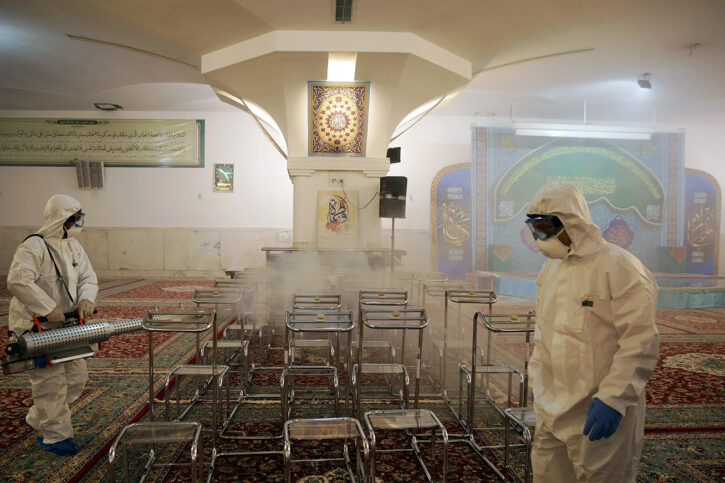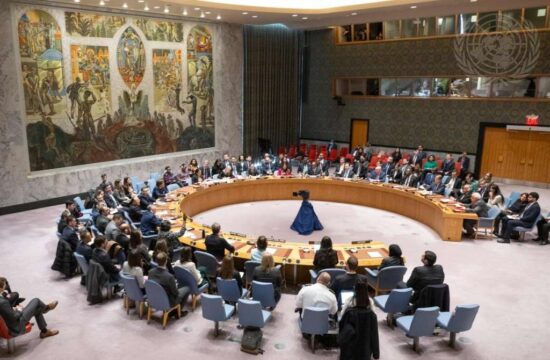
Iran will temporarily release 54,000 people from prisons and deploy hundreds of thousands of health workers as officials announced a slew of measures to contain the world's deadliest coronavirus outbreak outside China.
Pressure has been mounting on Iranian officials to take action against the virus as the death toll and number of cases rapidly shoots up. Iran has reported 92 deaths, as 586 new infections were reported overnight, bringing the total up to 2,922, state media reported.
The country has also come under pressure as Middle Eastern nations, including Iraq, the United Arab Emirates and Bahrain, have reported cases with links to the Iranian city of Qom, where several holy sites are regularly visited by large crowds.
After weeks of refusing to restrict visits to the sites, the government on Wednesday said that those trying to leave the city would be quarantined if they showed symptoms of the virus, including a fever. Medical teams will begin taking temperatures of those trying to leave, according to Qom University of Medical Science's Deputy Dean Ali Abrazi. He also said the university was building a field hospital to tackle the outbreak, according to state media.
Iranian officials initially reassured its nationals that the virus would be contained, but it was difficult to convince Iranians that was the case as 23 members of parliament tested positive for the virus and an adviser to Supreme Leader Ayatollah Ali Khamenei died on Monday.
Iran's First Vice President Eshaq Jahanghiri issued an order to government ministries, with the exception of the foreign ministry, suspending travel to international conferences and gatherings until further notice, state media reports.
Questions had swirled over whether the government was being transparent in reporting case numbers, as the high death toll reported several days ago suggested infection numbers should have been much higher than officials had confirmed.
Health system under stress
Iranian Deputy Health Minister Ali Reza Reisy announced Tuesday that a nationwide team of 300,000 health workers and specialists would be deployed to prop up the country's healthcare system.
There are growing concerns that Iran's health services are ill-equipped to respond effectively to the growing number of cases. Although the system has improved in recent decades, crippling sanctions have hampered its development.
Doctors in the country had told CNN before the outbreak that Iran was struggling to keep up with soaring prices of medications and medical instruments because of sanctions.
International organizations are now looking at how to fill the gaps in the system. The World Health Organization sent a team to Iran on Monday as well as its first planeload of assistance.
“The plane carrying the technical team members also contained a shipment of medical supplies and protective equipment to support over 15,000 health care workers, as well as enough laboratory kits enough to test and diagnose nearly 100,000 people,” the WHO said in a statement.
Iran said the WHO supplied eight tons of medicines and test kits via a UAE military aircraft from Dubai as well as six teams of epidemiologists, physicians and laboratory tests specialists, state-run IRNA reported.




